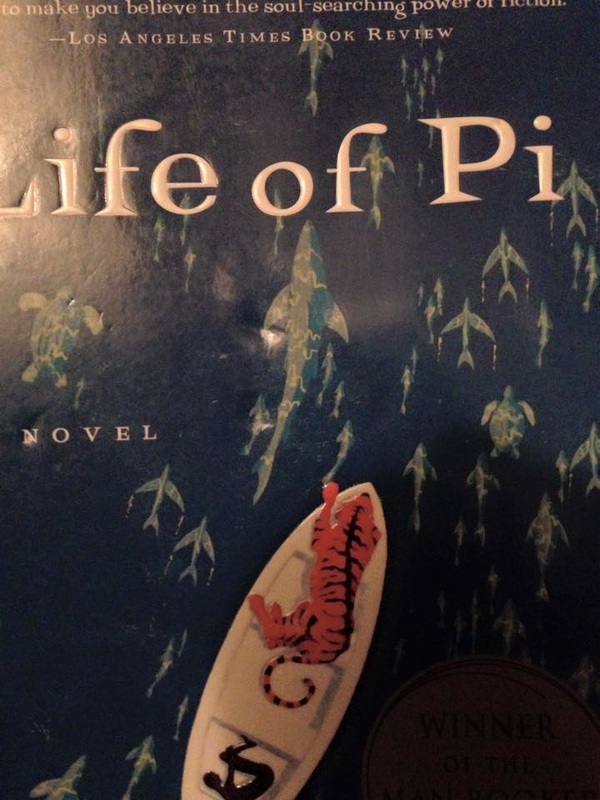| Today was a weird day. I have to admit up front, it did not go as planned. My plan was to get up early, read read read, write write write, and go see Game of Thrones at our weekly GoT party. That didn't happen. Alex got up later than I thought he would, which put my schedule off, and then I tried to get through Life of Pi. This book is due on Wednesday with an annotation, and I got about halfway through it today. It started off slow. So goddam slow. I was on page 100 when the ship sank (come on, you've had years to read it and you know the ship sinks, the movie was up for an Oscar). Knowing the twist ending, it makes it really interesting to see how Martel prompts his reveal. It's totally there. It totally makes sense, and it's haunting when you see these little remarks he makes. Chilling. I started crying when the hyena was ripping the zebra apart. It's such a rich story, and it's a different pace than what I'm used to. It reads much more like a meditation on religion than it does a narrative, which I like, but it's just a detour from where I usually go. Richard Parker. Phew, man. Phew. And Pi himself is a likeable ... although a little pretentious ... protagonist. But you're rooting for him. So I felt like writing something else that wasn't my main thesis. I wrote about a page of something that will probably go nowhere. It was about ghosts and stuff, which I'm still trying to decide how exactly to go about writing on. Still not there. But it was good writing. My writing is getting better, I guess. Yesterday, I got my packet back from my mentor, Nancy Holder. Nancy said that I have a career ahead of me, which made me smile. That meant a lot to me, to hear that. She says my writing is getting stronger. My scary scene played out the way I wanted it to. So that was a good packet to get back. She talked to me about "set pieces," which is something I'm trying to keep in mind as I read Martel's work. Martel is amazing at set pieces. As Nancy explained, set pieces are (long story short) when a scene is working in the larger framework of the story. Martel knows exactly where his story is going, and each of these scenes push forward into the larger picture. It's a masterpiece. Now just to figure out all the other scenes in that book. I closed my eyes and laid back on my bed, listening to the Life of Pi soundtrack, and tried to think through the scenes I'm working on right now. It helped a little, but then I got sidetracked with working on my playlist for my wedding. We realized today that we have 102 days until our wedding. 30 of those days don't count, because I'll be out of the country. So we have a lot of work to do, and we're trying to get some headway on it. We got really excited about our music selection and sort of let all the chores go to the side. Tomorrow, I need to keep reading Pi, and I need to get my two manuscript packets ready, because they're due on Wednesday. That means doing a lot of revision on the first chapters. I don't have a lot of time tomorrow, because I work at my contract job tomorrow for an hour, and then we have a concert to go to at night. Also, our dishwasher is broken. So here's to Sunday! On my last note, this is the first Sunday I don't have to dread a Monday. Huzzah for me! |
|
0 Comments
|
What is this?Dawson is a writer. This is her blog. In it, you shall read about reading. And writing. And cheeseburgers. Sometimes there are tangents. Huzzah. Categories
All
Archives
May 2019
|

 RSS Feed
RSS Feed